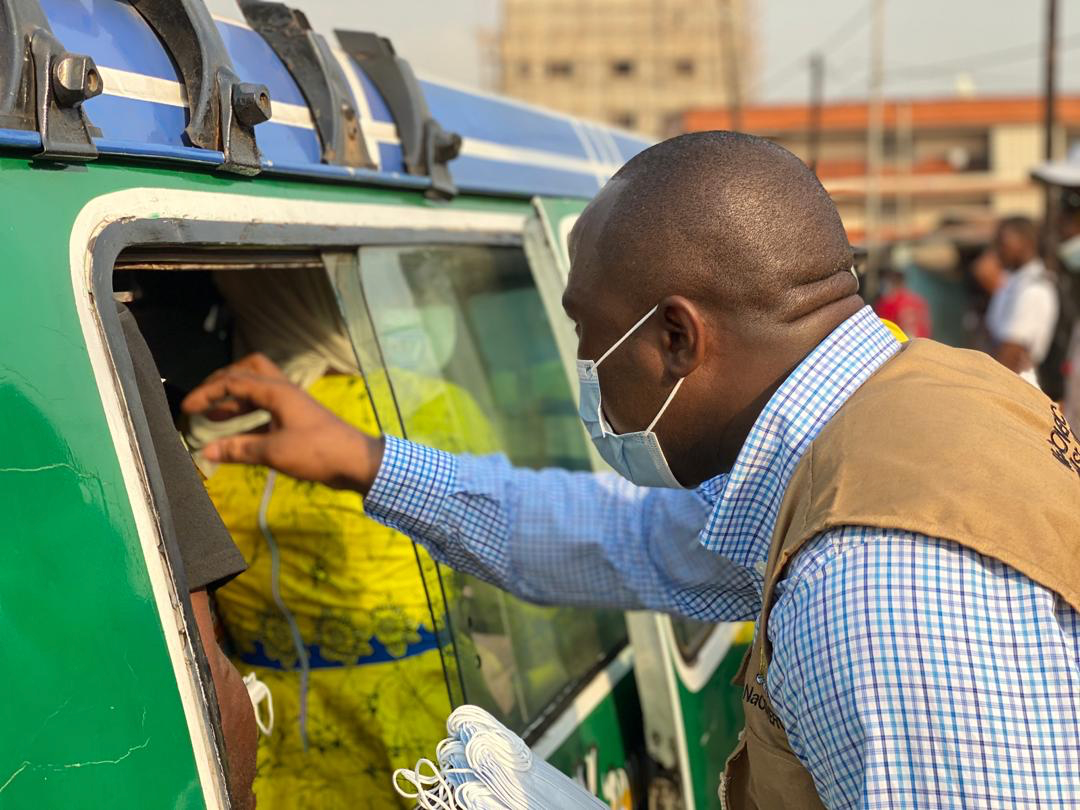Half of all households in Sierra Leone have lost income due to the coronavirus crisis, and 87 per cent have less to eat. And yet there have only been 3500 Covid-19 cases in Sierra Leone, and only 79 deaths. So what’s going on? Researcher Maarten Voors studied the effect of the coronavirus on developing countries.
Just like the Netherlands, the African country of Sierra Leone had to come up with a coronavirus policy in March last year. Should schools and shops close? And what did that mean for the economy and the food supply?
The government posed these questions to experts like the Wageningen development economist Maarten Voors, who has been doing research in Sierra Leone for 10 years and was at that time implementing a large research project aiming at supplying schools and clinics with solar powered electricity. Voors: ‘I said straightaway: be careful with a lockdown because that will affect incomes and food supplies.’
Sierra Leone took a lot of measures. People were asked to work at home, planes were grounded, a curfew was introduced, travel between districts was banned, all schools were closed, large gatherings were banned, and face masks were made compulsory.
Aid funding
The government and Western NGOs in the country wanted to know what the impact of these measures on the population was. Since Voors had built up a network of 7000 people in 200 villages for the electricity project, which was at a standstill due to the coronavirus crisis, he was well placed to conduct the study.
Thirty project workers in Sierra Leone phoned households every day asking things like: are the markets open, do you have enough to eat, what are the prices? A unique study because it was the first to systematically reveal the effect of the coronavirus crisis at household level.
Sierra Leone has never had much money to support the poor with, but it has even less now
The results were sobering. Nearly half of the households had less to spend because of the coronavirus measures, and nearly 90 per cent had less to eat. What was going on? Voors: ‘For a start, it’s obvious the economy had shrunk; fewer goods were being produced, and less food. Internal trade became more expensive because of the travel restrictions. And the government had less to spend too. Half of the government’s budget is aid funding. Sierra Leone has never had much money to support the poor with, but it has even less now.’
Secondly, adds Voors, something was happening in global trade. ‘Prices went up on the world market and the food that Sierra Leone imported got more expensive. Exports went down too, due to less demand from abroad. So the world economy is shrinking and so is aid funding to Sierra Leone. This country doesn’t have an immediate health crisis, because the number of coronavirus cases and deaths is low. No, here this is mainly an economic crisis.’
Poor
Looking at other developing countries, there are big differences but also similar patterns, says Voors. The impact of Covid-19 on the healthcare sector was bigger in Kenya than in Sierra Leone: in Kenya there have been 100,000 infections and 1800 deaths.
The loss of income in Kenya was much smaller, however, because far more Kenyans have permanent jobs. Voors: ‘You notice the biggest effect among the poorer sections of the population with no regular employment.’ So Voors thinks developing countries and donors need to work together to set up support programmes for the poor.
Their populations should be vaccinated too, states Voors. ‘There are still no coronavirus vaccines in Sierra Leone. The health crisis there is not too serious, but you don’t want a mutated Covid-19 virus to develop there which the vaccines don’t work against.’
The Study
In the article in Science Advances, 26 researchers, among them the Wageningen development economist Maarten Voors, describe the impact of the coronavirus crisis on the welfare of 30,000 households in Bangladesh, Burkina Faso, Colombia, Ghana, Kenya, Nepal, the Philippines, Rwanda and Sierra Leone between April and June 2020.
The main conclusions:
* People have lost work, income and market access, leading to reduced food security;
* An average of 29 per cent of the households have less work;
* 50 to 80 per cent of the households suffered loss of income (on average, 70 per cent less income);
* Half of the rural Kenyans reached in the survey were having to skip meals or eat smaller portions. In Bangladesh, this figure was 69 per cent, and in Sierra Leone, 87 per cent;
* Residents in all the countries reported limited access to markets and a loss of income. Most residents worked in the informal sector and had no social security.

 Photo Alpha Daramy, NaCOVERC (The National Covid-19 Emergency Response Centre – the branch of the government that coordinates Covid-19 activities in Sierra Leone)
Photo Alpha Daramy, NaCOVERC (The National Covid-19 Emergency Response Centre – the branch of the government that coordinates Covid-19 activities in Sierra Leone)